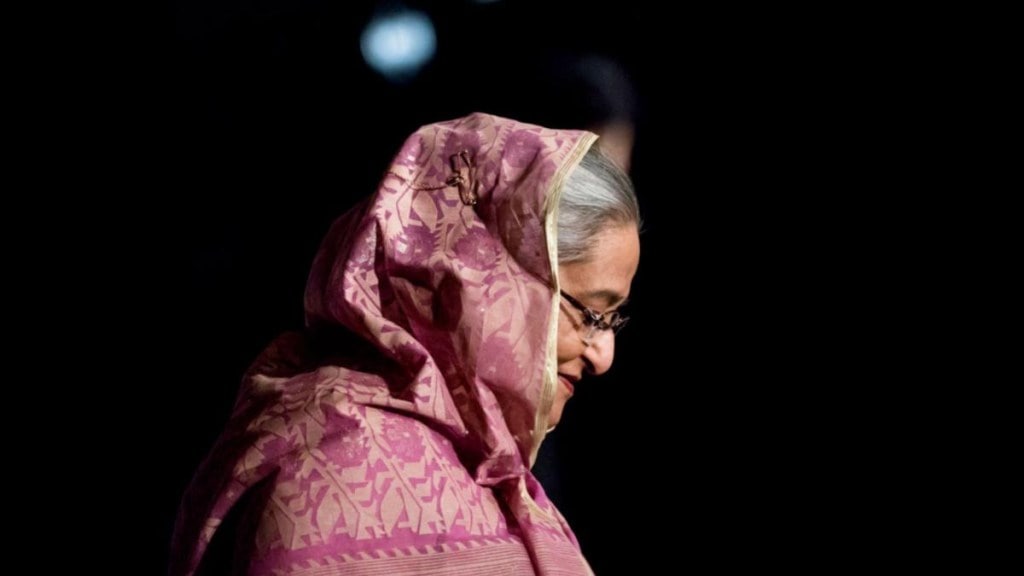Bangladesh’s interim government announced on Sunday that it will request Interpol’s help to extradite former Prime Minister Sheikh Hasina from India and other alleged “fugitives.” This move is part of the government’s commitment to bring those accused of crimes against humanity to trial. Hasina and key members of her political party, the Awami League, face serious accusations of using violent measures to suppress the Anti-Discrimination Students Movement, which began as a series of protests in July and August but quickly escalated into a national uprising.
Allegations of Suppression and Fleeing to India
The protests, sparked by demands for anti-discrimination reforms, were met with a brutal response from the Bangladeshi government, reportedly ordered by Hasina and her party leaders. According to the interim government, which is led by Chief Adviser Muhammad Yunus, the suppression efforts resulted in significant bloodshed. “At least 753 people were killed and thousands injured during the protests,” Yunus reported, describing these actions as both crimes against humanity and genocide. Facing mounting pressure and backlash, Hasina left Bangladesh on August 5, seeking refuge in India.
The interim government asserts that over 60 complaints related to crimes against humanity and genocide have been filed against Hasina and her party leaders with the International Crimes Tribunal (ICT) and the prosecution team, reflecting the severity of these accusations.
Interpol Red Notice: A Step Toward Justice
In a recent statement, Law Affairs Adviser Asif Nazrul informed reporters that the government would soon issue a Red Notice through Interpol, a significant step in locating and repatriating those charged with these grave offences. “No matter where in the world these fugitive fascists are hiding, they will be brought back and held accountable in court,” Nazrul declared.
While a Red Notice is not an international arrest warrant, it is a formal request for law enforcement agencies around the world to locate and provisionally arrest individuals who are wanted pending extradition or similar legal actions. Interpol member countries can decide how to enforce Red Notices based on their national laws, making this a strategic tool in the government’s pursuit of justice.
International Crimes Tribunal: A Revived Mission
The International Crimes Tribunal (ICT), initially established by Hasina’s administration in 2010, was tasked with prosecuting crimes against humanity committed during Bangladesh’s 1971 Liberation War. During its initial years, the tribunal convicted and executed several leaders from Jamaat-e-Islami and the Bangladesh Nationalist Party (BNP), led by Hasina’s rival Khaleda Zia. After a period of inactivity following the retirement of its chairman in mid-June, the ICT was reconstituted by the interim government on October 12.
On October 17, just days after being reinstated, the ICT issued arrest warrants for Hasina, her son Sajeeb Wazed Joy, and 45 other leaders from the Awami League, many of whom held positions in Hasina’s former cabinet. The interim government has made clear that these individuals will be tried before this tribunal.
Balancing Justice with Diplomatic Considerations
Despite the urgency, Chief Adviser Yunus acknowledged in an interview with the Financial Times that his government would proceed cautiously, particularly with Hasina’s extradition from India, to avoid straining diplomatic relations. This approach reflects a delicate balance between ensuring accountability and managing diplomatic relations, especially given the complex history between Bangladesh and its neighbouring country.
A Path Forward
As Bangladesh’s interim government prepares for a series of high-profile trials at the ICT, the national and international spotlight is fixed on the unfolding legal actions. With Interpol’s involvement, the tribunal’s mandate, and Yunus’s careful diplomatic strategy, Bangladesh seeks to address a complex chapter in its political history by holding those accused accountable for the July-August violence. The ICT’s proceedings in the coming months are expected to shape the course of justice and governance in Bangladesh.

